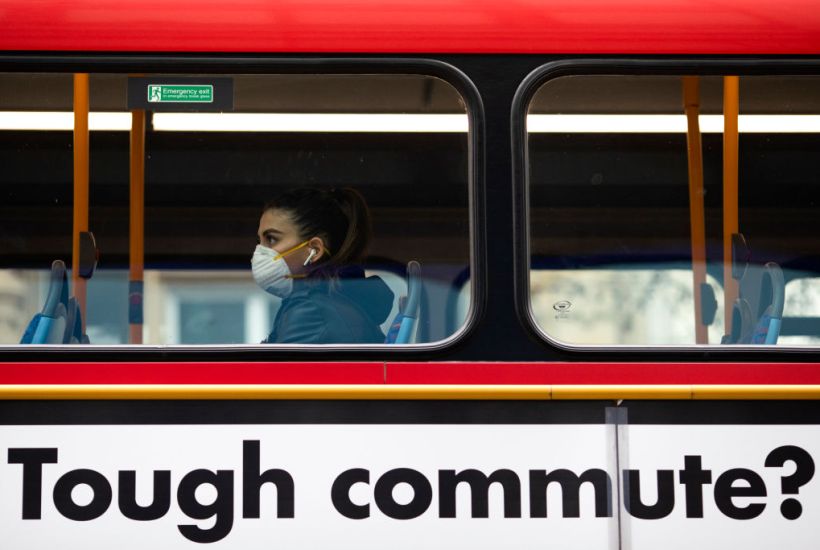National Work from Home Day might not be a calendar highlight but it has undoubtedly taken on increased significance during the pandemic. Remote work is du jour and the big question now is: will it become the new normal?
Take headlines at face value and we’re living in both a Zoomshock dystopia and a commute-free Shangri-La. We’re selfishly contributing to the hollowing out of city centres, and we’re righteously boosting the local economy. The same ministers now pushing for hybrid working to become the default unless employers have good reason to forbid it were last summer warning absenteeism risked making people more ‘vulnerable’ to getting sacked.
The true picture, of course, is less polarised. For a start, remote working isn’t a novel concept but rather a pre-existing trend accelerated by the Coronavirus and its associated restrictions. National Work from Home Day has been running for 16 years. Its aim, of promoting smarter working practices, has remained unchanged. The Government’s business insights and conditions survey reported in February that only nine per cent of businesses thought productivity had increased, while 33 per cent thought it had decreased. We should probably be wary of those who say: ‘Covid killed the office. Long live hybrid working’.
To further complicate the picture, because the Office for National Statistics’ definition of home working differs from most people’s understanding of the term, headline data are misleading. This definition includes many people who work on a farm or stables where they live, or above a pub or shop. It also incorporates plumbers, hairdressers, electricians – folk who might have a filing cabinet in the bedroom but certainly don’t correspond to the popular image of workers in home offices in front of a computer screen.
But let’s assume, for the sake of argument, that many workers who sampled WFH during the pandemic will wish to continue to do so as we unlock. Let’s assume, too, that many businesses will welcome the opportunity to slash fixed costs, such as rented office space, by welcoming their requests. Let’s briefly park concerns from economists like Tyler Cowen that virtual tools cannot replicate the intellectual frisson of ‘gathering the smart people’ together, potentially damaging performance and innovation. There can surely be no objection to firms and employees adopting new, mutually agreeable, modes of working? Ones that could allow businesses to access a significantly larger pool of talent and attract workers from regions where the cost of living is lower?
Not so. The same bunch who always know what’s best for others have been handed a fresh opportunity to cry ‘class divide’, ‘new inequalities’ and ‘workers rights’ – and they won’t let it go to waste. That our labour market has been knocked sideways by Covid hasn’t stopped trade unionists from demanding that government consider one-size-fits-all regulation to stop unscrupulous employers exploiting susceptible employees. In their warped worldview the balance of power between business and worker never weighs even. Not in the gig economy – despite Uber surveys repeatedly revealing drivers value flexibility and control over their hours above traditional rights. Not for zero hours – which the TUC still wants banned. Nothing, and certainly not the employer-employee relationship, can be left to chance.
These pressure groups are weaving a pretty tangled web. In the US in the 1940s, union pressure led to industrial home work being abolished in seven industries, including women’s apparel, glove-making and embroidery. Now, they’re complaining employers need to ‘catch up’ lest we create a two-tier society.
On the one hand, they want to open the door to widespread job sharing, flexitime and remote working. On the other, they piously demand that being able to disconnect from work during non-work hours becomes a human right, as is the case in a number of countries on the continent. But if work in the evenings and at weekends is forbidden, employers will want to be certain employees are chained to their desks during contracted hours. No popping to the Post Office, no school runs. In short: not-so-flexible working.
In reality, our labour market is hugely diverse and varied, and allows for a wide range of lifestyles. As a result, blanket policies concocted in Whitehall won’t end well. The corollary to workers’ rights is higher costs – which will be passed onto employees, shareholders or consumers. Employment mandates risk limiting a firm’s ability to take on staff or to increase their wages. Legislation is often designed to protect those in work, but risks shutting out the less fortunate unemployed. Needless to say, none of this is desirable when we’re billions in the hole and millions are still on furlough.
Got something to add? Join the discussion and comment below.
Get 10 issues for just $10
Subscribe to The Spectator Australia today for the next 10 magazine issues, plus full online access, for just $10.



















Comments
Don't miss out
Join the conversation with other Spectator Australia readers. Subscribe to leave a comment.
SUBSCRIBEAlready a subscriber? Log in